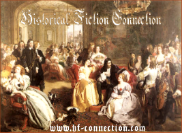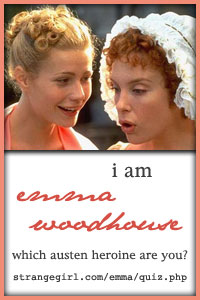 The Daughter of Time, Josephine Tey
The Daughter of Time, Josephine Tey 4 roses
*May contain spoilers*
This was a fascinating read by Josephine Tey. It is the story of Alan Grant, a policeman with Scotland Yard, who is laid up in the hospital after being injured on the job. A friend brings in a portrait of Richard III and he has a hard time believing that the man in the picture is the horrible, nephew murdering hunchback that he is familiar with. This sparks his interest and to relieve his boredom he takes up the 400+ year old case of Richard III - did he or did he not murder his nephews in the Tower? He and an American researcher working in the British Museum sort through all the evidence they can get and look at the case through a policeman's perspective - considering motives, opportunities, written accounts from the times, looking for breaks in the normal routine of the main players, etc. Grant becomes convinced that, based on the evidence, that Richard did not murder his nephews. In fact, he had absolutely nothing to gain and quite a bit to loose if he did.
It should be mentioned that Tey is writing a work of fiction here so I'm sure some things that didn't fit into her story were most likely left out. But that aside, it is an intriguing look at a man who history has made out to be a horrible monster. One of the points Grant realizes (and probably the biggest) is that, basically, history is written by the victors. Anything that might make them, the victors, look bad is going to be changed and anything that can discredit the vanquished will be trumped up as much as possible.
Some of the evidence/points that Grant comes across:
1. The accepted history of Richard III was written by Thomas More who was about 8 when Richard was killed AND he was writing for a Tudor King. He certainly wasn't going to publish anything that would make Henry VIII's father look bad. Also, a lot of his information apparently came from a certain John Morton, who hated Richard. (It should be noted that Shakespeare used More's account of Richard's life when writing his play Richard III, which most people today base their idea of Richard on.)
2. Richard had declared all of Edward's children illegitimate but there were still several heirs in line ahead of him and they continued to live happy lives during his reign. No reason to do away with just two of the heirs between him and the throne and leave all the others.
3. When Henry VII was having all of Richard's crimes laid out never once was the murder of the Princes mentioned. He wasn't even accused of it.
4. After Richard took the throne, Elizabeth Woodville came out of sanctuary, her daughters went to Richard's court, and she wrote to one of her Grey sons in France to come home because Richard would be kind to him. Would she have done this if she thought Richard killed her sons?
5. Henry VII, to bolster his claim to the throne after killing Richard, married Elizabeth of York, the sister of the Princes in the Tower. To make her claim to the throne valid, he had to make her (and ALL her siblings) legitimate. Once he did that, her brother was the rightful King again.
These are just a few of the points Grant considers when he finally comes to his verdict at the end. Some of the information Tey puts into her story certainly will make you think about what you accept as history, especially in a case such as Richard's. I do wish the story had been longer and more detail given about some of the evidence presented but I would recommend this book to anyone who is interested in Richard III.























This was a very interesting book -- I think it's definitely one that anyone interested in Richard III should read. It took me awhile though to figure out what "the daughter of time" meant. And, actually, it's been long enough that I don't remember exactly...
ReplyDeleteI liked this a lot. I must confess that I have a bit of a pro Richard III slant. I really want to believe that it wasn't him. The only thing that really dated this book was the hospital treatment of the inspector! Can't imagine spending that long in hospital for a broken leg these days. One day I will read more from this author.
ReplyDeleteA fascinating issue. You know, even the negative accounts of Richard supposedly promoted by More and Shakespeare might actually, by providing a sort of "profile of the tyrant," be hidden ways of talking about the man who usurped his throne, Henry VII.
ReplyDelete